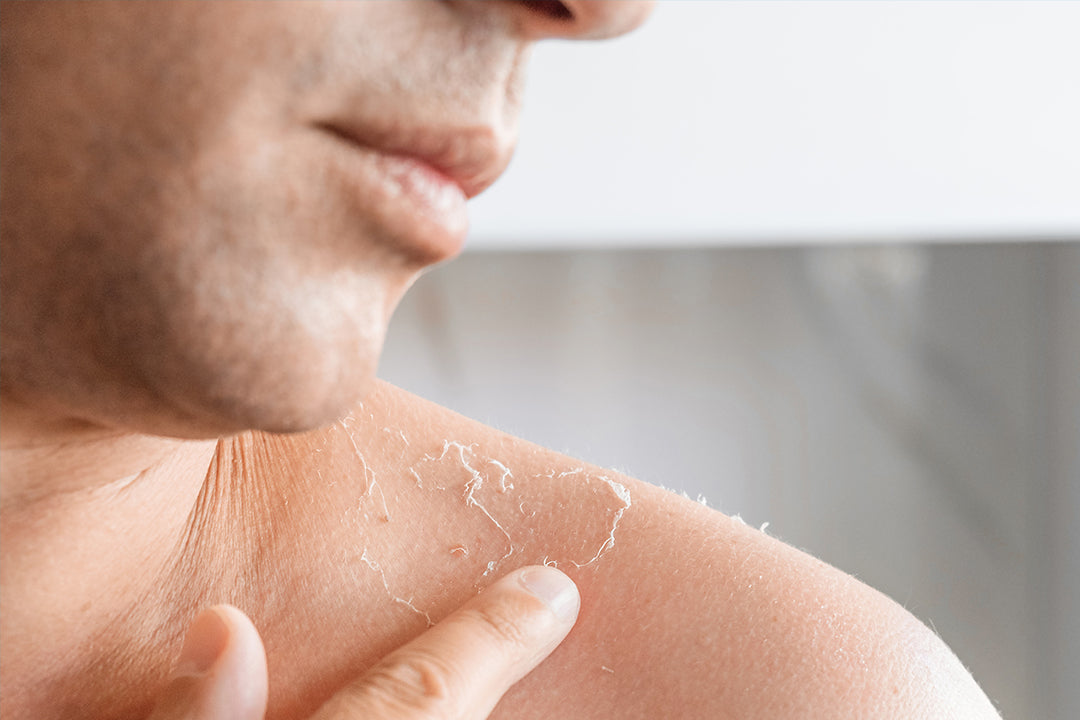Do you often find yourself struggling with skin problems? One common condition that affects millions of people worldwide is psoriasis. In this blog post, we will explore the various skin problems associated with psoriasis and discuss effective ways to manage them. Whether you are already familiar with psoriasis or just starting to learn about it, this comprehensive guide will provide you with valuable insights and tips to take care of your skin.
Understanding Psoriasis
Psoriasis is a chronic autoimmune disease that primarily affects the skin. It is characterized by the rapid growth of skin cells, leading to the formation of thick, red, and scaly patches. These patches can be itchy, painful, and sometimes even bleed. While the exact cause of psoriasis is still unknown, several factors, including genetics, immune system dysfunction, and environmental triggers, contribute to its development.
Common Skin Problems Associated with Psoriasis
1. Plaque Psoriasis: Plaque psoriasis is the most common form of psoriasis, accounting for approximately 80% of all cases. It is characterized by raised, red patches covered with silvery-white scales. These patches often appear on the elbows, knees, scalp, and lower back.
2. Guttate Psoriasis: Guttate psoriasis usually appears as small, red, drop-shaped lesions on the torso, limbs, and scalp. It is commonly triggered by bacterial or viral infections, such as strep throat.
3. Inverse Psoriasis: Inverse psoriasis primarily affects the skin folds, such as the armpits, groin, and under the breasts. It appears as smooth, red patches that are not scaly.
4. Nail Psoriasis: Nail psoriasis can affect both the fingernails and toenails. It causes pitting, discoloration, thickening, and crumbling of the nails.
5. Pustular Psoriasis: Pustular psoriasis is characterized by the formation of pus-filled blisters surrounded by red skin. It can be localized or generalized, affecting large areas of the body.
6. Erythrodermic Psoriasis: Erythrodermic psoriasis is a rare but severe form of psoriasis that can cover the entire body with a red, peeling rash. It often causes severe itching, pain, and discomfort.
Managing Psoriasis-Related Skin Problems
While psoriasis cannot be cured, there are several ways to manage the associated skin problems effectively. Here are some tips:
1. Maintain a good skincare routine: Use mild, fragrance-free cleansers and moisturizers to keep your skin hydrated and reduce inflammation.
2. Avoid triggers: Identify and avoid triggers that worsen your psoriasis symptoms. Common triggers include stress, certain medications, infections, and cold weather.
3. Topical treatments: Over-the-counter creams, ointments, and gels containing ingredients like salicylic acid, coal tar, and corticosteroids can help reduce itching, inflammation, and scaling.
4. Phototherapy: Light therapy, also known as phototherapy, involves exposing your skin to specific wavelengths of ultraviolet light under medical supervision. This treatment can slow down the growth of skin cells and reduce inflammation.
5. Medications: In severe cases, your doctor may prescribe oral or injectable medications, such as retinoids, methotrexate, or biologics, to manage your psoriasis symptoms.
QRxLabs: Your Skincare Solution
When it comes to taking care of your skin, it's essential to choose products that are both effective and gentle. QRxLabs offers a range of skincare products specifically formulated to address various skin concerns, including psoriasis. Their products are free of parabens and silicones, ensuring a mild yet effective skincare experience.
QRxLabs products are infused with key ingredients like glycolic acid, retinol, squalane, niacinamide, and salicylic acid, which have been proven to be beneficial for psoriasis-prone skin. Whether you're looking for toners, cleansers, creams, moisturizers, serums, or chemical peels, QRxLabs has got you covered.
Frequently Asked Questions
Q: Is psoriasis contagious?
A: No, psoriasis is not contagious. It is an autoimmune disease and cannot be spread from person to person.
Q: What causes psoriasis?
A: The exact cause of psoriasis is unknown, but it is believed to be a combination of genetic and environmental factors.
Q: How long do psoriasis flare-ups last?
A: The duration of psoriasis flare-ups varies from person to person. Some individuals may experience flare-ups that last for weeks or months, while others may have shorter episodes.
Q: Can diet affect psoriasis?
A: While there is no specific diet that can cure psoriasis, certain dietary changes may help manage the condition. It is recommended to maintain a healthy, balanced diet and avoid triggers that worsen your symptoms.
Takeaways
Psoriasis can be a challenging condition to live with, but with the right knowledge and skincare routine, you can effectively manage its associated skin problems. Remember to consult a dermatologist for personalized advice and explore the range of skincare products offered by QRxLabs to find the perfect solution for your skin. Take control of your skin health and embrace a life free from the limitations of psoriasis.









